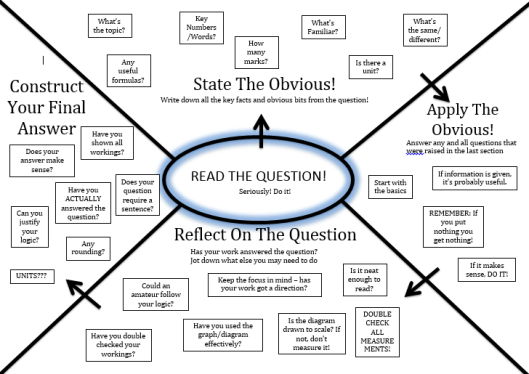It’s… been a while.
Life is strange and often twists and winds in ways you don’t always expect.
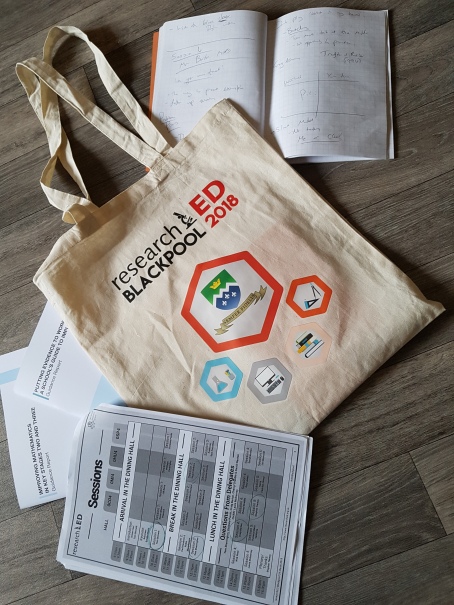
That said today has been one of the most head-ache inducing days of my career to date. I’ve just got back from ResearchED (rED) in sunny Blackpool (no joke, flipping gorgeous today) and my head is banging.
It is my intention to sort of walk you through my day, summarise any points I can remember and share my thoughts on the topics at hand.
I’ll start by saying that whilst my presence on Twitter and here have been much reduced of late, I have still been kicking around and following all the debates if not actively engaging. So when I was given the opportunity to go to rED I jumped at the chance. The line up looked amazing and I have been waiting with anticipation for a few weeks now.
My plain is to firstly talk about the day as a whole then have separate sections detailing the various talks so that way if you’re interested in a particular aspect of the day you can skip ahead.
Apologies in advance if this blog post is a little rough around the edge. I’m very much spouting as I go. Also, whilst I will try to keep the write up to as close as I can recall from both my memory and my notes, I may (will) get some things wrong, mis-interpret other things or just generally miss out some crucial bits. I will of course be tagging all mentioned people in this post where possible and will give a right to reply to any points raised. If needed i’ll edit any replies directly into the appropriate section to help clear things up.
Part 1 – The day itself
I rocked up to the lovely St Mary’s Catholic academy about 8:45am. After signing in with the helpful and very professional students I was led downstairs into the bright and sunny canteen area where I was encouraged (not that it took much) to have a cup of coffee and a pastry. Any time my (seemingly ever expanding) stomach is thought about it sets me off right.
After a brief chat with other teachers we went into the main hall for an introduction from Mr Tom Bennett and Mr Simon Cox followed by a key note speech by Baroness Estelle Morris.
Less than an hour into the day and I was already buzzing, twittering, note making with excitement. I’ll go into the details a little later but you get the idea.
After the key note the day started in earnest with 5 different sessions in 5 different locations over the course of the day. I had already made my choices but here is a list of the speakers so you have an understanding of my dilemma today.
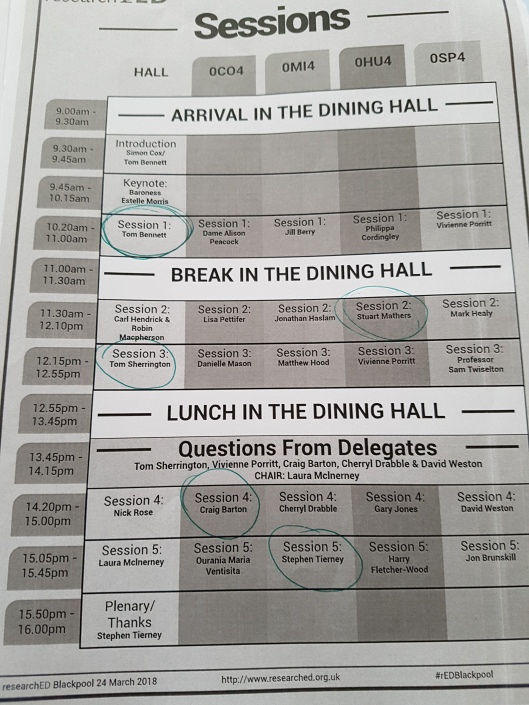
Clearly the circled speakers were my choices.
Over the next 5-6 hours (lunch and copious amounts of coffee included of course) I have had my head wobbled and shaken more times than I would care to count and I will try to explain why as I go along.
I’m not the biggest note taker in the world yet I managed to make about 29 pages of notes over the day in my own absolutely horrendous spider scrawl (see below).
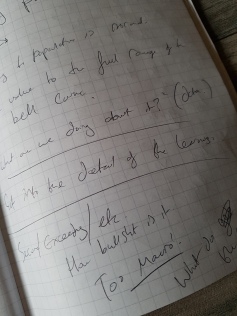
Irrespective of the quality of the notes, I have attempted to decipher my own gibberish and recap the sessions below.
Introduction – Simon Cox and Tom Bennett.
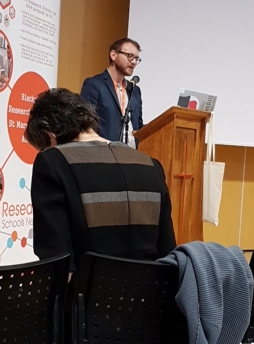
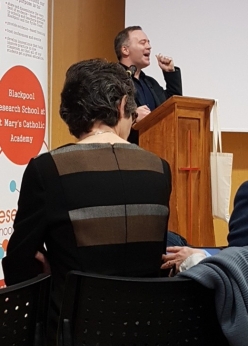
– good looking chaps
Both Simon and Tom welcomed the delegates and gave some background not only on rED but also the role St Mary’s was playing in the day. There are currently 23 ‘research schools’ in the UK with the primary goal of sharing good practice and working to achieve the greater good of a more research led education.
Whilst Simon’s tenure at the podium was brief, he was clearly passionate, articulate and motivating in what he said.
There is no great surprise though that Tom stole the show during the introduction as he swiftly explained the role and aims of rED as well as giving some time to the thought processes that go along side the aims.
Some of the stand out parts for me was Tom saying that ‘evidenced based’ is not really the right term to use and that ‘evidence informed’ was a much better phrase as it set the expectation that our practice as teachers would be influenced by the evidence, not used as a launching platform before going in our own direction.
It was suggested that we are all culpable to the movement and that we must promote evidence where ever we can. Even if that meant challenging our own views.
I’ll leave this section with a paraphrased statement from Tom.
“Folk teaching is not enough, children deserve better. Teachers deserve better”
Keynote: Baroness Estelle Morris – Taking stock of the movement for evidence based reform.
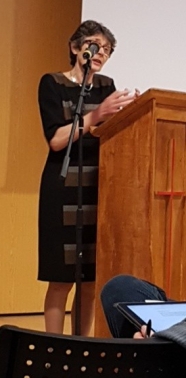
I’ve never heard the Baroness speak before though I guess I am a product of her initiatives seeing as I was secondary school myself in the back end of the 90’s and in college in the early 2000’s. There is clearly something about her though as all eyes remained on her for the full 30 minute long speech that was passionate, relevant and really helped set the mood for the day.
The Baroness talked about the need for the rED movement to be teacher led and that this is the only way to guarantee longevity and that in recent times there has been a significant shift back to conversations around teaching and pedagogy.
“Evidence informed teaching puts teaching back at the top of the things that are important.”
The Baroness was very quick to point out that there has been a shift in the dynamics and that there seems to be real progress that is seeing teachers and researchers working as equals. She also stated that now was the time to really reflect on what has been achieved so far and to spend some time plotting on what (not how!) the next step should be.
It was said that the growing popularity of rED is not a movement yet, the seeds have been planted and there is a common cause but the words needs to spread further and each of us is responsible for this.
We should be focusing on teaching with evidence and that it is important to define and then stick to the vision and values of the supposed movement.
Mrs Morris also raised the idea that this movement is inclusive. It’s not just for senior leaders, it’s not just for administrators but it is for everyone from NQT to seasoned grumpy teacher (I added that bit!) to MAT administrators. Everyone.
She did point out some problems that we will have to overcome to be considered a movement and to begin the next epoch in teaching.
- Evidence is slow in being gathered. There is no quick fix to this.
- Evidence can be inconsistent. Always changing and we need to be mindful of the fact that our ‘truths’ (again my turn of phrase) may one day be invalidated. Can we change the message once it has been said?
- Getting all leadership on board.
- It is tough to do.
- Funding (she raised the idea that if 1% of all research finding went directly to schools to do research this could have a huge impact)
Moving forward the baroness gave some thinking points for the future. How do we (as a group) spread good practice/ get research into schools. How does a more research focused system integrate with standard core beliefs? i.e. Ofsted, Governance, the public perception, teacher training?
There was a lot to cover and a lot of it really made sense. She was hopeful but reserved and really emphasised that if we truly wanted the change, it would have to begin and end with us!
Only by challenging the future can we change the future *roll credits*
Session 1: Tom Bennett – Creating a culture: What evidence tells us about good behaviour in schools.
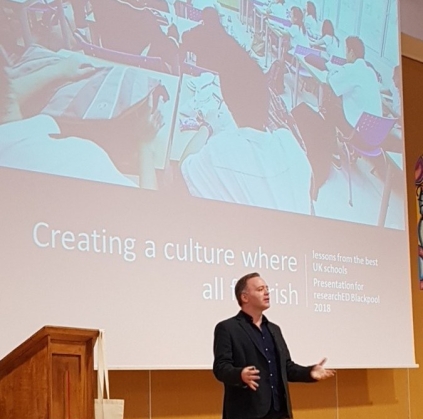
I decided to stick with Tom into session 1. I’ve been working hard on my own classroom management lately and really wanted to be inspired to keep at it as it’s not something that comes naturally to me (does it anyone, really?).
Well, Tom had this to say. Regarding running a room Tom said that leadership was the key and that school management is linked to good classroom behaviour (good behaviour in this instance being pupils/students doing the right things, not just the opposite of the wrong things – if ya get me!)
He went on to talk about the ‘Creating a culture’ report describing how one of the goals was to produce something that is useful to classroom staff, not just the government.
Iv’e read this report. go read it. Seriously. It’s good stuff. (Link! –> https://www.gov.uk/government/publications/behaviour-in-schools)
“Nothing works Everywhere, Everything works somewhere.”
- Dylan Williams
Tom talked about several key findings about schools with good cultures from his time visiting schools. There was consistency, high expectations, the schools did everything with relevance to their own circumstances and schools always tried to ‘get in front of the behaviour’.
Tom spent some time talking about why it’s important to really define the terms of which you are talking about and be really specific about what you are trying to achieve. It’s not good enough to say ‘to get better at x i’m going to do x’. This is not new stuff.
I remember doing this type of thing as part of my earlier school days when looking at goal setting theory (Locke? i think!?) and this is just the logical extension of this.
he said to ask yourself ‘How can I make sure things are going to work out right?’ Plan for behaviour. Tom talked about flipping the thought processes. Don’t just think and plan for poor behaviour but also think about what you would do when kids DO behave!
We need to become the..
“conscious architects of the school culture”
- Design it.
- Build it.
- Maintain it.
We should be specific in what kinds of behaviour we want. “what does good behaviour look like in the lunch queue/ when waiting to enter a room/ when a visitor enters a room etc.
How do we build on what we have already? The staff buy in and the type of language we use both when alone with other staff and with the pupils. All is indicative of the culture.
If there was one key message in the talk it was in order to establish a culture. It was consistency is essential.
A culture will form in the school if we don’t plan for one so get in front and do it first.
He challenged us to really think about when building a culture ‘what are the important things that we will ALL do that will make the difference’.
Unfortunately Tom missed a trick. He did say that there was no quick fix to culture and behaviour. No ‘Tom Bennett method’ he could package. A real shot in the foot to his bank account one would imagine! 😉
Silliness aside, he said it was imperative that one establishes the norms, establish the routines and to make sure that whatever you do you do it until you can’t get it wrong.
Setting a culture is important as it will also help to give guidance and give something for the pupils to gravitate to.
Tom mentioned some criticism he has had in the past about his role as behaviour tsar and how he has been accused of limiting students. Tom replied that he believed that routines provide liberation. It gives the pupil freedom to grow with known boundaries and that the routines help to establish the safety structure and support needed for that growth.
Tom was cautious to say though that at all stages, the exceptions must be thought about.
Tom did what Tom does. Entertain, provoke thought and generally show himself to be the confident all round nice bloke that has a lot of advice to give. On a side note, Tom gave the best off hand joke of the day that didn’t get anywhere near the attention that it deserves.
Tom was talking about the old behaviour guru that gvmt used. He made an offhand comment about how they regenerated…
“guess i’m the Scottish one then…”
Genius!
Session 2: Stuart Mathers – Putting evidence to work.
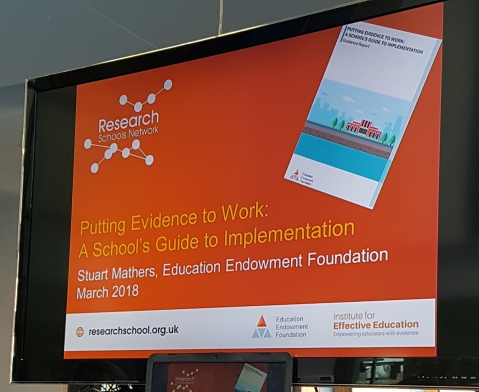
Stuart was representing the EEF at the event and was using his session to help promote what they do and gave some insight into how the EEF believes schools should implement research.
“It’s not about recipes, it’s about allowing teachers to make better judgements”.
Stuart described 5 stages of how this could all work
- Choose what you want to achieve.
- Identify possible solutions
- Work on the idea that has the best chance of success.
- Evaluate if it did work
- Securing and spreading change.
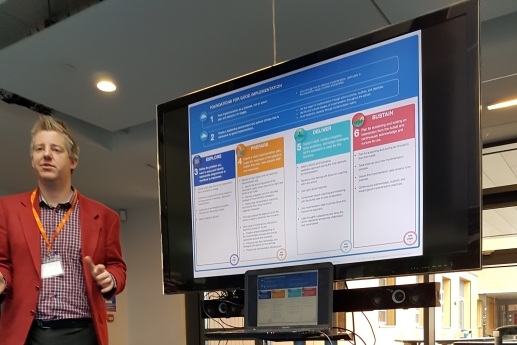 #
#
It was said that how well you do something is just as important as choosing what to do.
As you can see in the pic above, Stuart went into detail about the 5 earlier points and iv’e tried to summarise the key points here.
Action plan for implementation.
This is a process, not an event. This can take a long time to get right and in order to prepare the foundations for the change, all need to be on board starting with the leadership.
Explore.
Be specific, use data! Think about the fit and feasibility of what you are trying to achieve. Is a culture change needed?
Prepare.
Make sure you create the plan. Does your plan fit and the solution tie together? Have you thought about the non-negotiables? Can you explicitly state how you are going to achieve what you want to do? What activities are you going to use to do what you need to do? What are the outcomes and how do you know when you have met them? Who is leading the change in the school?
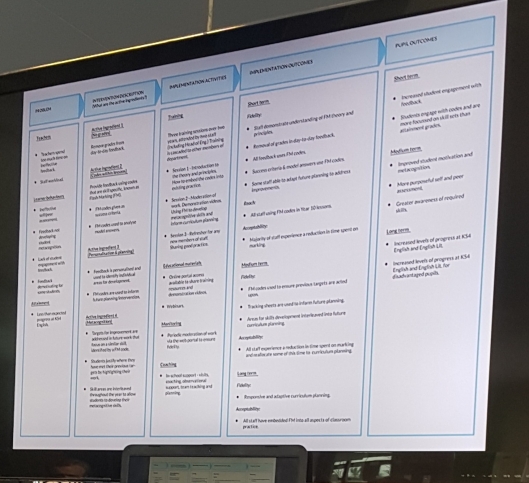
The (somewhat blurry 😦 ) logic model above would help to collate all this information.
Prepare.
Is the motivation there? Can it go school wide? Has the practical preparation been done? That is to say have the people working on the project got the relevant skills needed for the job? Are the systems in place? who is accountable?
Deliver.
How do you manage expectations? What about follow on support? How does your follow on support link to the objectives and the change at hand?
Is there appropriate support in place?
Sustain.
What about the upkeep? Is there enough skills diversification so if someone leaves, becomes ill the change maintains? Who is responsible for passing on the skills needed for this change? Could it be scaled up to a full school or MAT? what are the implications of this?
Stuart asked a lot of questions, the sort of questions that no-one really knows the answer too unless you are in the position of pushing for change. Some good solid advice all round.
Session 3: Tom Sherrington – No can do? Making assessment actions count.
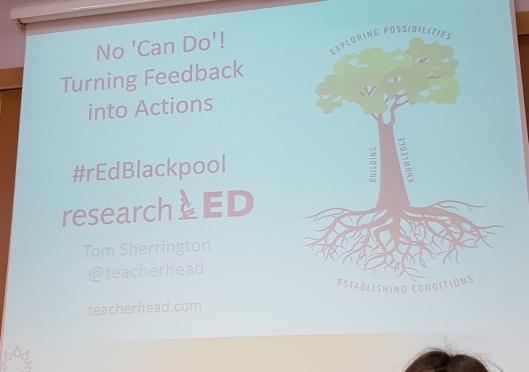
When it comes to assessment, Tom suggested that We make sure we have established the conditions for assessment, built the knowledge structure and then explored all possibilities that arise.
Assessment should focus on the detail.
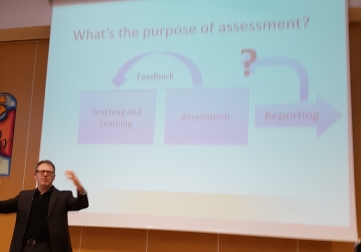
Does the assessment allow the teacher to be better? If not why not? Remember that progress is relevant to your starting point. Tom made the point whilst talking about reports and how in his sons report it might say he (the son) was emerging in one category but secure in another. Tom argued that this is meaningless data on its own and neither informs the pupil, nor the parents and is nothing more than a life with levels under the guise of life without levels.
He showed a variety of level ladders from various subjects that just didn’t explain what it meant to be a level 6 at the topic instead relying on vague statements. i.e. ‘An emerging student will begin to discuss the blah blah etc’ you get the point.
Tom did say though that comparing someones progress to the population is normal and often gives more detail than a grade alone.
Tom said we should give value to the full range of the bell curve. This stemming from the fact that no matter how well all students do in their final exams, only a limited % will achieve the magic grade 4 or above and that saying those who fall below have failed is a damaging statement when the system is designed this way. He described this as the ‘Bell curve cage.’
It was more important to get into the detail of the learning and one way to do this was through effective assessment.
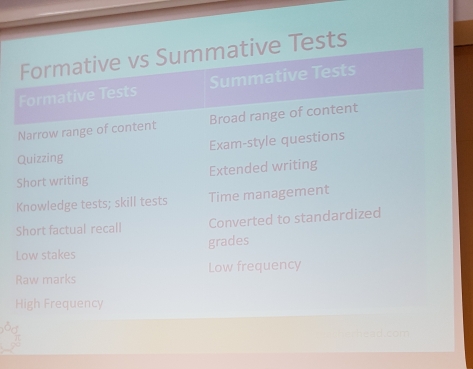
As well as assessments, Tom briefly talked about the learning zone/performance zone.
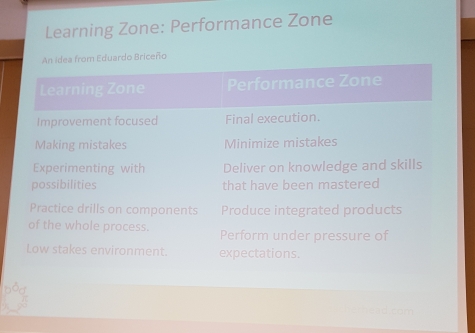
Tom ended by talking about the 5 ways of giving effective feedback.
They are:
- Re-do
- Rehearse/ Repeat
- Revisit/ Respond
- ReLearn
- Research / Record
I highly recommend his blog where he does a much better job of explaining than I wold do. https://teacherhead.com/2017/12/18/fiveways-of-giving-effective-feedback-as-actions/
Despite being the second Tom that day I had listened too I came away from this session really contemplating what we do at my school and asking myself how much we do for use and if it really does improve teaching?
Q and A Session: Hosted by Laura McInerney.
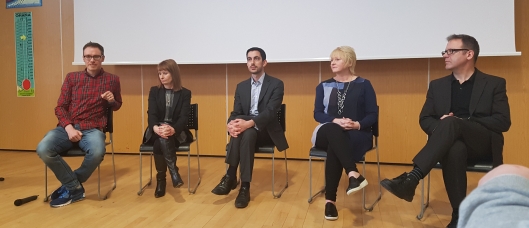
From left to right
Craig Barton, Cherryl Drabble, David Weston, Vivienne Porritt and Tom Sherrington.
The panel was asked a series of questions put forward by members of the audience.
Here are some of the (abridged) questions and (abridged) answers they gave.
Question: At what point does Independence become Scaffolding?
Answer: Independence comes from Knowledge, got to have the tools first. It also comes from support and confidence. Use of daily low stakes quizzes work well in building up initially.
Question: Does research spread well on Twitter?
Yes – and no.
Yes it spreads fast but there’s no guarantee that the right research (as opposed to incomplete/ old or interpretations) aren’t being seen instead. Always fact check.
There’s a lot of Tribal-ness on twitter and people tend to stick to their own echo chambers. Look for those who break free and mingle. Find the sparks that shine and always check your emotional reaction, positive or negative.
Question: Best way to share research?
Answer: Someone needs to be a champion in every school. Share things via email. Impact Journal etc.
Look for the quick wins in order to help people convert to a research led life.
One quick win being the hyper-correction affect. Whereby errors made in confidence tend to lead to higher leaps in learning. Cognitive shock.
Questions: What software do you recommend?
Answer: Anki (for spaced questions), Complete maths (by Mark McCourt) MS office suite training resources (I missed the link on this one) The AAC technology used to help people with severe SEN issues.
Question: What research had the biggest impact on yourselves?
Answer:
Cognitive load theory – Sweller
7 Myths of Educations – Daisy Christodoulou
Jeff Petty on John Hatties Research
Evaluating learning and development – Thomas Goska (sp?)
The confidence gap – the Atlantic
Inside the Black Box – Dylan Williams
Can’t say too much else about this section. A lot going on here.
Session 4: Craig Barton – How I wish I’d taught Maths: 3 months on.
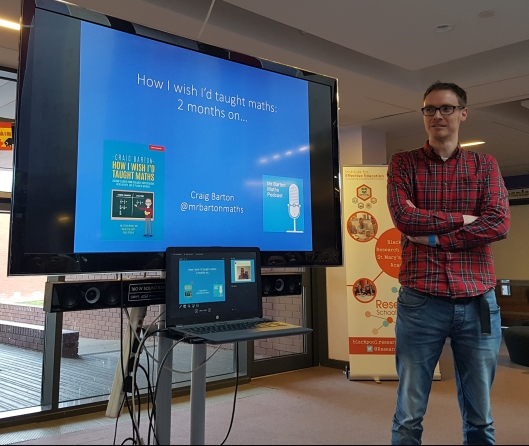
That power stance!
Firstly I would just like to say thank you to Craig if he ever stumbles across this.
Thank you for the headache.
I think it’s fair to say that Craig (along with Mel, Jo not to mention a whole host of others) are legends. They are what we mere mortals aspire to. So to see and have the opportunity to listen to Craig talk about teaching was a real pleasure.
I learnt useful skills like ‘liking your own tweet for extra views’ and… i’m kidding of course.
Craig has delivered what might just be a seminal moment in my career. Reflecting on his own practice over the years, Craig has transformed the way he teaches by making sure it is as research informed as possible.
He focused on two elements for the presentation.
- The way he introduces a topic / presents information
- follow up questions on said topic.
When introducing a new topic, he discourages the use of ‘Guess whats in my head’ as a starting point. He argues that if you try to look for the best possible outcome in the situation you are usually left questioning why you asked in the first place.
Craig takes modelling to a new level. He starts his new topics by saying nothing. He will model how to solve a question on the board making sure to insert pauses where a child might and setting out his work as he would expect a the pupil to. There is no opportunity to talk, no opportunity to ask questions. Just Mr Barton, a pen and a question on the board.
It all ties in with cognitive load theory of not wanting to overload explanations. Allowing the brain to give as much attention as it can to the task at hand.
Once Craig has finished his question. Without discussion he put a second question up on the board for the pupils to complete in their own book. This question will be the same question with only one real difference.
It’s all part of the idea that if we want to know how something works, we tweak a bit and see what changed. Just like adding in an extra full stop in a bit of code (don’t do that btw. It’ll break)
All this is helpful to the children. It shows them Maths being done. Sets the expectations and it had some unexpected benefits (as Craig pointed out). Namely that it helps with ‘harder’ classes and that it has helped those with EAL issues access the work.
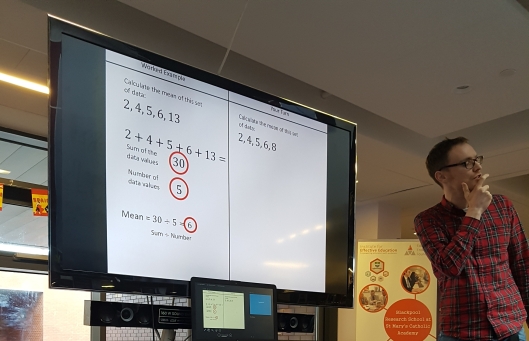
It’s simple but effective
This done Craig showed us how he used intelligent question chains to help explore the depth of a topic whilst also helping to give the pupils that practice time (variation theory)
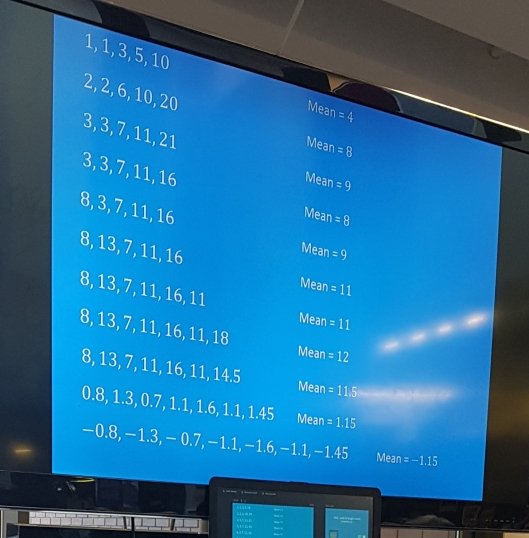
After each question the pupil is asked to reflect on the question they have done. See what they expect to happen in the next question and finally check if they are right.
Look at the question chain! look at it! It’s beautiful in its (appeared) simplicity yet will push pupils into answering questions they wouldn’t have considered otherwise.
As Mr Barton says
“Forming an expectation is the key to learning”
I mentioned earlier about the cognitive shock (hyper-correction shock) and this all fits in with that ideology.
I’m not going to say anything else on this session as I feel I need to do a lot more reading before I make any further comments here.
Looks like I’ll (or maybe my school *wink wink* boss if you’re reading) be investing in Mr Barton’s book ASAP!
At the start of this section I thanked him for the headache. That was a genuine thanks. It’s not everyday you get your world turned upside down… I can’t wait to see where this leads me long term!!!
Session 5: Stephen Tierney – Evidence + Experience = Wisdom
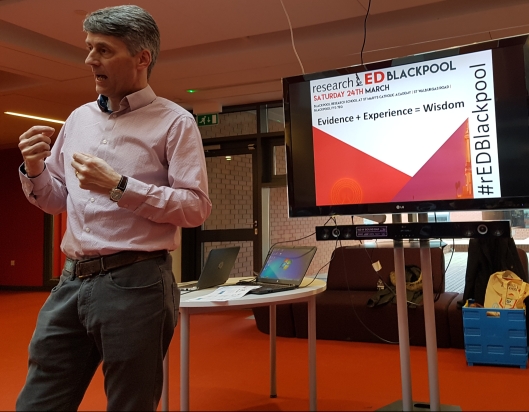
I’m paraphrasing here but
“Wisdom is the ability to make good choices.”
This really was the message that I took from Stephens session.
He warned us about the dangers of blindly following research and helped guide us in making sure that the research we do follow was from as good a source as possible.
He said that research should be from well established researchers that provided research that worked in lots of different environments. The researches didn’t always have to be right and that many researchers don’t publish work that doesn’t fit their narrative. Common sense is key.
In an effort to get across the point that in research we should be doing fewer things but better he cited 5 key pieces of research that we should all read. They are:
- What makes great teaching – Coe
- Principles of instructions – Rosenshine
- Cognitive load theory – Sweller
- Improving students learning with effective learning techniques – Dunloskey
- Developing great teaching – Cordingley(?? maybe??)
He cited examples of research informed changes that emphasis the relationship between effort and impact.
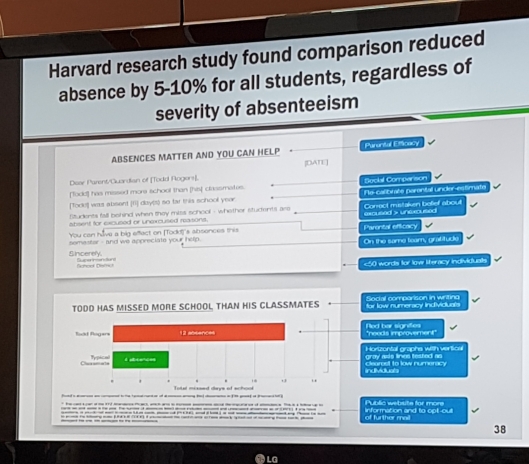
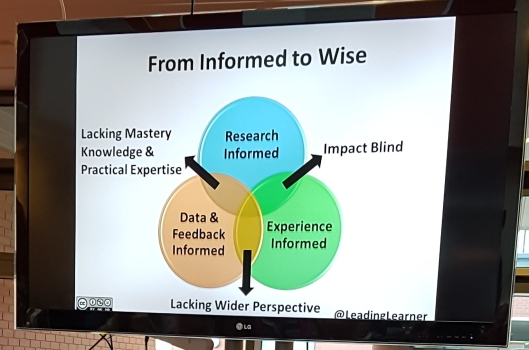
Implementation is the key.
I found Stephens session to be really rewarding though I do wish it happened earlier in the day. After 5 Hours of information I was pretty tired at this point.
Still I think I captured the essence of the session but i’m sure some will have vital info I’ve missed.
The goodbyes
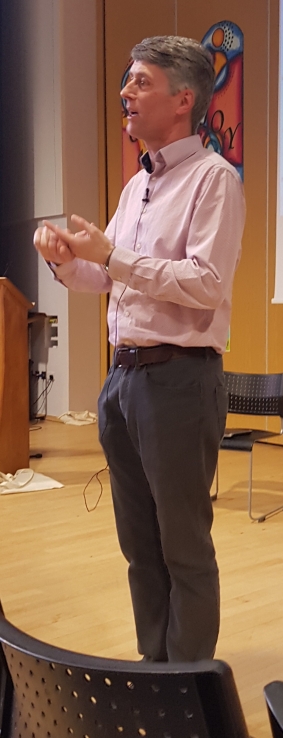
Stephen also did the goodbye talk. It was brief, relaxed and used a good quote in relation to the movement that is researchED.
“This is lightning, Let’s go create the thunder.”
Before I end I just want to pay my respects to not only the organisers and school for setting up and running the event, but to all those there on the day who made sure it ran as smoothly as it did.
Thanks to the catering staff for the coffees and cakes, thanks to the school for hosting, thanks to the speakers for giving me far to much to think about and most importantly, thanks to the pupils who gave up their free time to help the event run on a Saturday! They were a credit to both themselves and their school.
So that was my write up of the event.
It’s probably far too rough, raw, long, full of grammatical errors but it’s here and now it’s for you.
I really enjoyed myself today and would highly recommend that if you get the chance that you go to one of these events. In the meantime join in the debate on twitter, in your staff room, down the local pub, wherever.
It might just change your life.
Andy x


